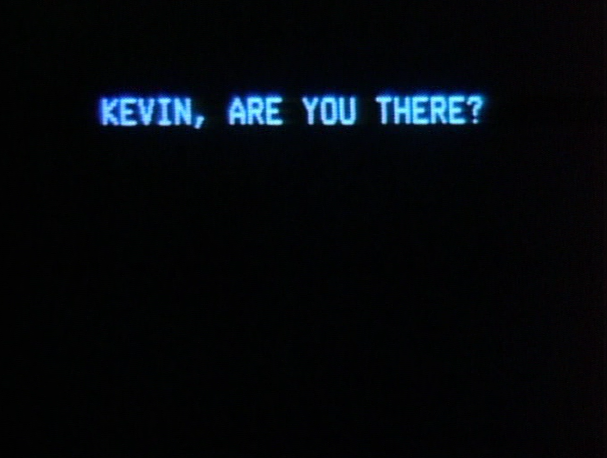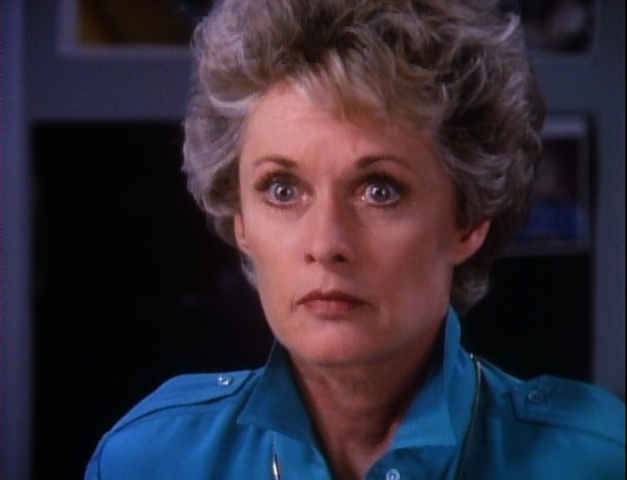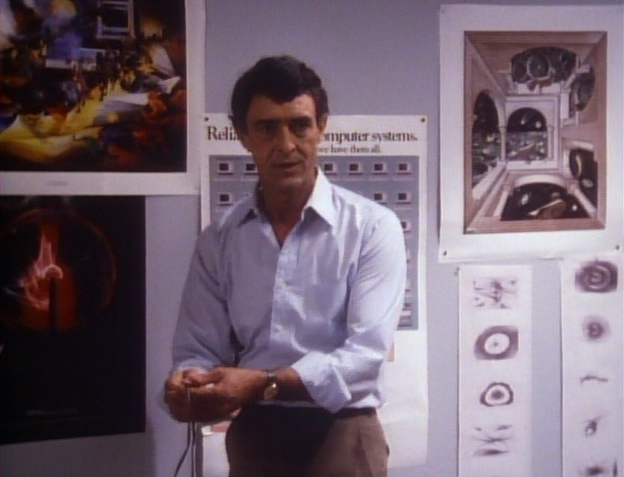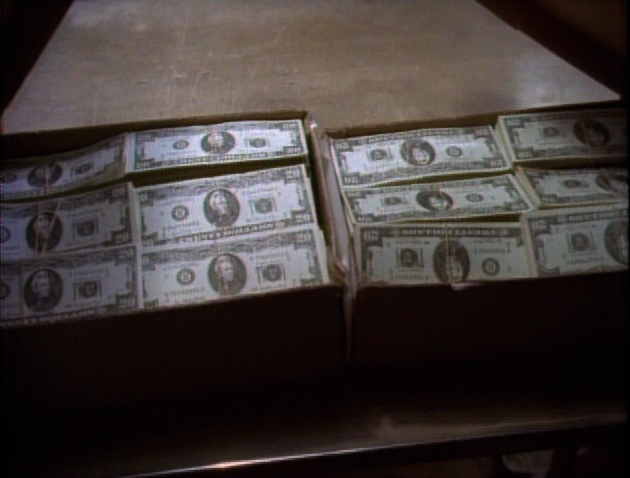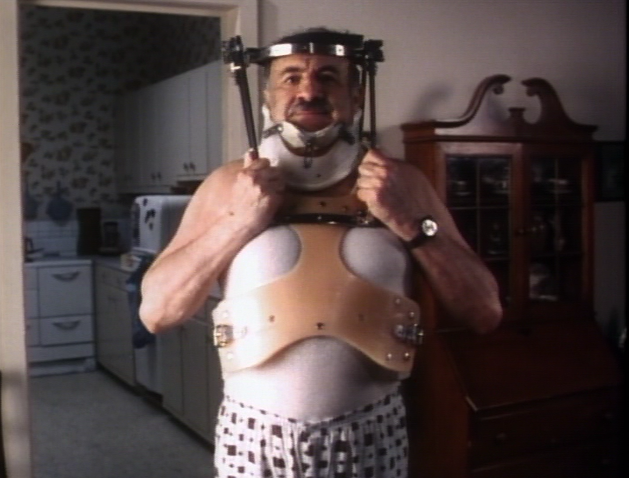Original Airdate: November 4, 1984
Directed by Timna Ranon.
Written by Dan Kleinman, Story by Dan Kleinman and Marc Fields.
Starring Justine Bateman (Susan ‘Pookie’ Anderson), Tippi Hedren (Ruth Anderson), George Sims (Harold Anderson), and Ron Asher (Kevin ‘Mookie’ Anderson).
SYNOPSIS: Mookie and Pookie are twins, and as twins are emotionally inseparable. Brother Kevin is a computer whiz who is gradually dying from an unnamed illness, forcing him to spend most of his time locked away in his bedroom with his beloved modems. When he passes away, his sister Susan promises to finish the program that he started, her obsession with the project dismaying her parents. But the program Susan is completing will in fact restore her brother to the family unit once more.
CRITIQUE: When Roald Dahl tangentially tackled similar territory as “Mookie and Pookie” in his 1959 short story “William and Mary,” his take was of a decidedly cynical bent, dealing as it did with the dissolved-by-death marriage of an older couple and the husband’s continuation of life in the form of a pickled brain. Mary used this strange opportunity to take back her existence from the tyrannical rule of the despised William, but Dan Kleinman uses the same conceit to show not the bitterness of a holy union but the unwavering devotion of familial love.
The episode is by no means a tearjerker, but it does provide a wistful glimpse into a world where death can be conquered by the right algorithm of binary code. Ron Asher is on the scene only for the establishing scene that paints him as one of those dreamer-geniuses who have posters of Einstein decorating their walls, but the brief time he shares with Justine Bateman (FAMILY TIES) is serviceable and effective enough to sell us on their relationship. Kleinman wisely declines using any sugary-sweet “Aw shucks, bro” type of interactions that might hamper a lesser drama and their bond is understood without ever coming off as showy. Even though the buzzer alerting the family to Kevin’s failing life support system occurs before the first commercial break, we can still appreciate the sense of loss.
The attitude that the parents have towards computers in general is amusingly reflective of the time period, with Dad getting especially irked by his daughter’s use of the technical term “glitch” during their game of Scrabble. George Sims (who was last seen in ALLIGATOR II: THE MUTATION) gives his daughter a little too much credit in her technical know-how when he surmises that she hacked into a bank database to look up a check he had written for the sale of the computer, but he strikes just the right chord of angry disbelief and stern parental guidance to balance the tone. His character is particularly odious when he tries to give a message to Susan "from Mookie" asking her to give the computer up. Sometimes parents can be even more insidious than the harm they think they're protecting their children from.
If the dictum that states that parents never truly understand their children is true, the episode agrees. Mom and Dad are seen as interfering in Susan’s search for her brother’s soul in the digital ether, insisting that her grief is affecting her judgment. They do this without ever truly saying it, which is the norm in family politics. No one ever comes out and says their feelings unless the script tells them to. Mom eventually comes around, but there’s a very telling moment right before she does when she tells Susan that she’s signed her daughter up for riding camp that summer. This was a privilege that was originally denied to Susan because of her brother’s condition. The part where Mom acknowledges that Susan can go now because of her son’s death and explains that this is also a means to get Susan away from the keyboard goes unspoken, of course.
An interesting parallel develops late in the story that compares Susan's battle to the moralistic plight surrounding humans in vegetative states. Throughout the episode Susan desperately tries to convince her parents that Kevin is in fact alive. Both Mom and Dad type questions on the screen--electric blue light against the blackness of the unknown--that go unanswered but Susan insists that her brother is “there.” It is only when Dad threatens to pull the plug that Kevin’s mechanized plea bursts from the voice synthesizer, shattering the protective cocoon of reality from around him. Realizing that he has come close to bestowing a second death on his son, Dad decides that he needs to go sit down and think for a little bit.
The resonance of this scene is softened by the slightly-cheesy denouement that sees the smiling family back at the dining table playing their regular game of Scrabble with the now computerized Kevin offering his word choice on the interface of his screen as the rest of the group laugh warmly. They don’t freeze frame the moment though, thank Christ. "Mookie and Pookie" may be tame stuff when compared to other episodes but serves as a sweet little testament to the belief in undying love. This one’s for all the brothers and sisters out there.
“It must be the hardest thing in the world to lose a twin.”
***
RATING: 2 1/2 LizziesCOMING UP: David Patrick Kelly is feeling wiped out in "Slippage."


